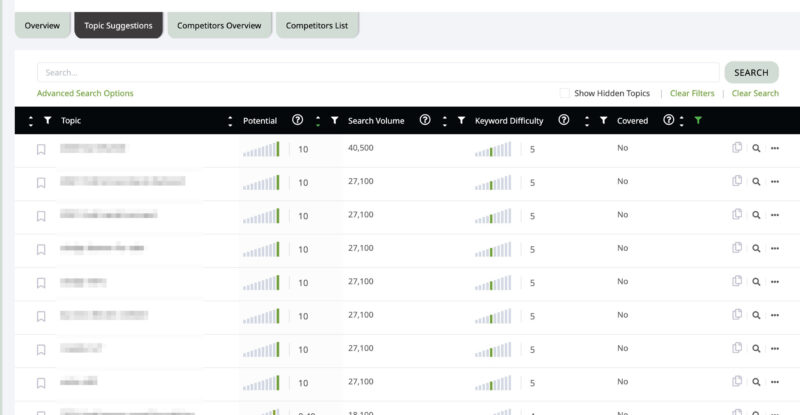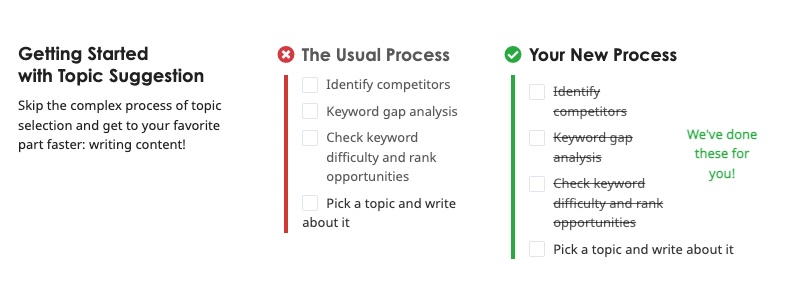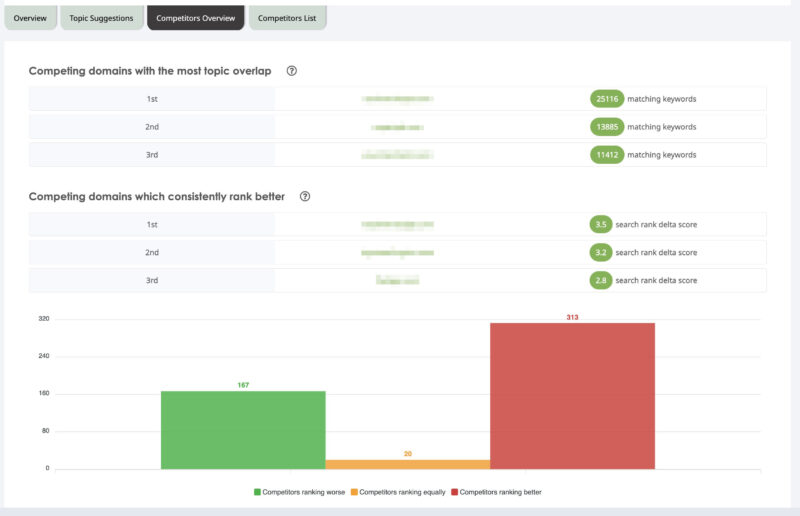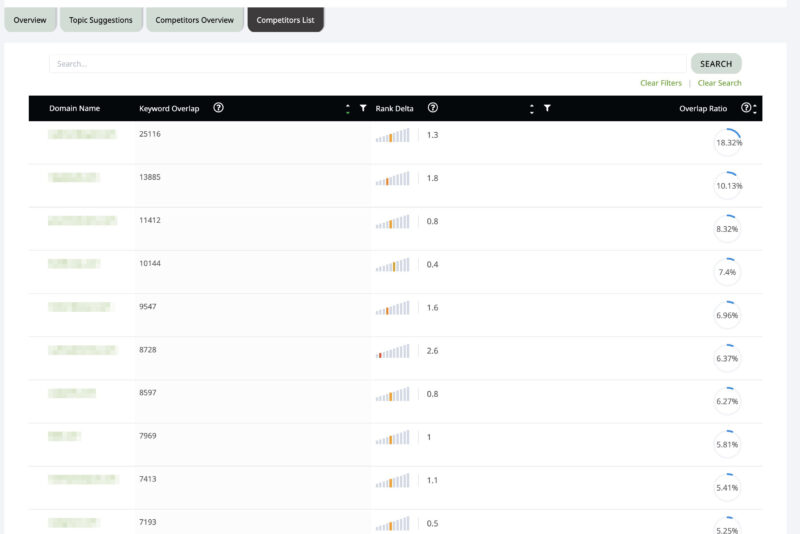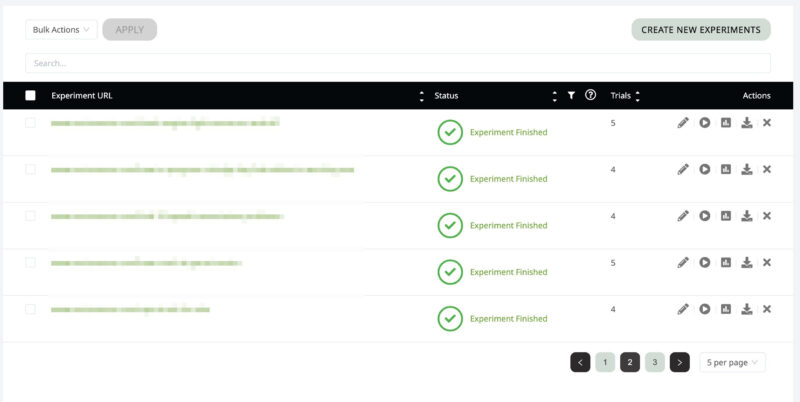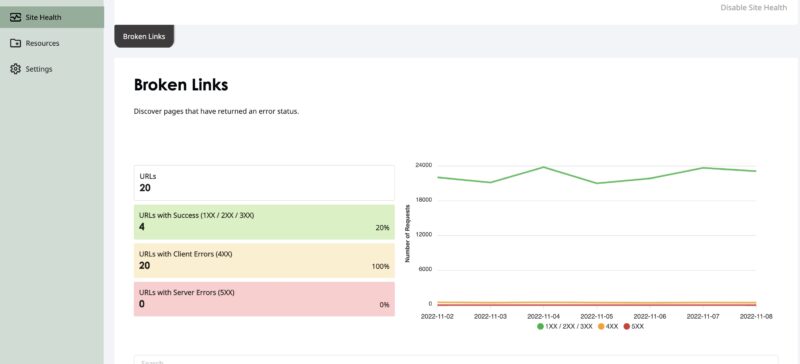For our fellow publishers, it’s hard to understate just how crucial and game-changing SEO tools could be. Our case study domain, for example, grew massively in the past two years after shifting our focal point to putting more effort into keyword research and creating engaging content around it. However, as we’ll learn more by diving deep into what is Ezoic’s NicheIQ tool, not every SEO toolset is created equal.
If you’re just starting out with publishing content online and need to do some keyword research, your options are limited… 1) there are plenty of fantastic and uber-powerful keyword research tools, but it will cost you a lot of money… or 2) resort to using free or cheaper SEO tools, but they likely won’t get you nearly as far enough to sufficiently cover all your bases. So, what should you do now, then?
In that case, perhaps the third option might be your end-all solution – NicheIQ. It’s a service that’s just been unveiled by the folks at Ezoic – you’ll probably know who the latter is, as we’ve discussed them with great detail many a time. NicheIQ is a really neat all-in-one SEO tool to help you find or discover new topics, as well as analyze your site to see what else could be done to up your SEO game.
With NicheIQ, even in its early days, you can get suggestions for new, possibly high-earning keywords that you could focus on. Or, run A/B testing on title tags to best optimize your web pages and use a variety of analysis tools to check out how your competitors are doing. Not to mention, seeing if there are any broken links on your site, and much more. So, let’s see what NicheIQ can really do…
What’s A Niche?
Before we get into discussing what is NicheIQ, it would be worth looking into what “niches” are in the world of online content creation. A niche is defined as a topic, subject, or genre. For example, you see blogs that write about farming… In this instance, they’re in the agricultural niche, be it crop diagnostics, optimizing crop returns, grain studies, and so on. Elsewhere, there are a wide variety of other niches to write about.
There’s a niche for every possible subject, like technology, health, fitness, culture, food, travel, and DIY, as well as countless others. From the perspective of SEO, studying what niche you want to write about is an important consideration, as some niches do better than others, SEO-wise. Plus, there’s also all that ad revenue that’s at stake, as certain niches have more lucrative monetization than others.
With that out of the way, let’s take a peek at some of the tools, features, benefits, and good reasons why NicheIQ is a helpful tool for all you publishers out there, whether you’re just starting out or have been in the business for a little while…
1. Topic Suggestions – Get Popular Keyword Recommendations
If you’re having trouble figuring out which keywords work best and which ones don’t… Or, if you need some inspiration, or want to maximize your site’s SEO as much as possible to get the highest chance of attracting readers, NicheIQ has you covered. I’d argue that this alone is a highly compelling reason to use NicheIQ. Rather than manually finding good keywords on your own, NicheIQ spits it out for you on a weekly basis.
So, how does it work? Well, what this tool does is take in every keyword that you already rank for. Then, every week, NicheIQ would find and showcase other unexplored (yet, relevant) keywords that you might find interesting and may be worth working on. It would then organize and rank them by their:
- Search Volumes – How popular they are and how much traffic they’re getting… (don’t be shy about writing for those lower-volume keywords, because if no one else is covering them, then there’s less rivalry for you to compete against)
- Keyword Difficulty – How easy or difficult it would be for those keywords to rank in Google… (on NicheIQ, I’ve found that 5 is a good sweet spot, where the keywords aren’t too difficult to rank. But, the potential returns that you get are high enough to justify investing in a written article dedicated to it)
- Coverage – A simple Yes or No check on whether you’ve gone through that particular keyword before (one of the worst things you can do is waste time and energy on a duplicate, after all)
How Does It Work?
For example, let’s say that you’re running a technology blog that covers a lot of gadget reviews. This Topic Suggestions tool would basically scan your site, letting NicheIQ understand what keywords you may have written about in the past. It could see, for instance, that you’ve written an article around a keyword for “iPhone X review” or “Alienware gaming laptop review“, among plenty of others.
In so doing, NicheIQ then scans competing tech blogs similar to yours (primarily those sites that have a lot of overlap of keywords – more on that later). This allows NicheIQ to then spot other popular keywords which you might be interested in and that are relevant to your particular niche. Plus, those keywords may feature strong SEO potential and a good chance of ranking well in Google, but you’ve not done them beforehand.
As an example, NicheIQ’s Topic Suggestions might recommend that you work on “iPad Pro review” or “Acer desktop review“. Of course, you shouldn’t blindly use all of those suggested keywords. Rather, a more ideal method is to cherry-pick those that aren’t just generic or vague two-word keywords. Or, if you can’t think of much content you can write about them. In all, careful analysis is needed.
Nonetheless, these recommendations are quite handy if you’re just starting out your blog. Many new publishers will no doubt come across budgetary limitations in their early years. So, it’s hard to justify the high expense of using third-party SEO and keyword research tools. If you need a good foundation to start off with, NicheIQ is included for free for every publisher who’s using the Ezoic ad network.
2. Competitors Overview – See How Well Your Rivals Are Doing
Another tool that NicheIQ offers is the ability to quickly glance at your competitors. And, allowing an aspiring publisher to directly compare their site with others. NicheIQ achieves this by analyzing every keyword overlap between your site and others. For example, if you and another website discuss an identical keyword, such as “top places to travel in 2023“, this counts as overlap and is tagged.
For the most part, this particular tool isn’t as in-depth. Instead, it’s more of an overview of your site’s performance in relation to others that work within a similar niche. This is a quick and easy way to see who’s your strongest rival. Moreover, check whether they’re outranking you in the search results. Nevertheless, from here, you at least know who to learn and take inspiration from.
3. Competitors List – Who Are Your Fiercest Competitors
While that aforementioned Competitors Overview service gives you some neat glanceable highlights, NicheIQ’s Competitors List tool lets you get into the nitty-gritty. Here, you could very clearly examine just how well (or poorly) your website competes against others. The best dataset that you should be looking for here is the number of keywords that overlap between you and another website.
As we’ve mentioned before, this is a good starting point to study what they’re doing and what sort of keywords are your rivals using. You can then emulate their success by targeting similar keywords. Or, have a better understanding of which keywords work best (and which ones don’t) within a particular niche. This is especially vital to comprehend for new publishers who need to make headway.
4. On-Page SEO Tag Tester – Try Out Different Title Tags
Among the most important SEO checklists that you have to get right are the title tags. The latter is basically the main title of an article or webpage, which is thus referenced in Google search results. A good or bad title tag can make a huge difference when it comes to clickthrough rates. In short, if you (a random internet user) see an attractive yet relevant title, you’ll most likely click on it.
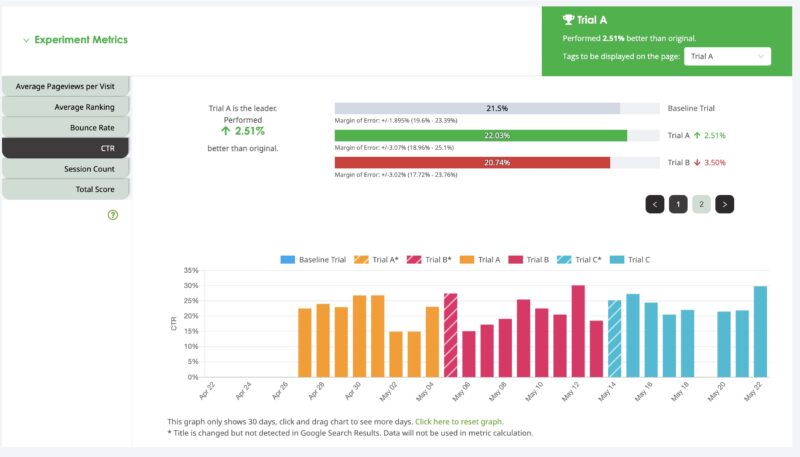 Now, Ezoic already has tools to analyze title tags, which their NicheIQ service then consolidates into a single dashboard. What this does is allow you to set up an experiment where you need to input the URL links to existing pages on your site and input a few options for title tags. Then, the Tag Tester tool will run tests to see how the title tags perform on Google. And, then it shows you which one performs better than others and sticks with the winner.
Now, Ezoic already has tools to analyze title tags, which their NicheIQ service then consolidates into a single dashboard. What this does is allow you to set up an experiment where you need to input the URL links to existing pages on your site and input a few options for title tags. Then, the Tag Tester tool will run tests to see how the title tags perform on Google. And, then it shows you which one performs better than others and sticks with the winner.
All you need to do is leave this A/B testing running in the background, and it’ll soon come back with a scoring system. This gives you insight into which title tag – whether it’s the default one that you used, versus the options you ask it to test – can attract the most clicks.
5. Site Health – Does Your Website Have Broken Links
As your site continually operates, it’s normal that you’ll eventually encounter technical issues. Among the most common that publishers have to deal with are broken links. This is bad for SEO, because if the readers are directed to a broken page, how is that supposed to translate into traffic?
Using NicheIQ’s Site Health tool, it regularly monitors your site to spot these. Practically, it would make sure that every URL is directed properly. On top of that, alerting you if there are any web pages with 404 errors. Or, if there are any broken scripts running on your website, as well as notify of all the other miscellaneous technical issues. This makes it easier for you to keep on top of them.
Is NicheIQ Worth Considering?
In conclusion, Ezoic’s NicheIQ is a brilliant tool for any publisher. If you’re already on Ezoic, there’s no reason to not at least give it a try. And if you’ve yet to join Ezoic, this is another compelling reason to hop aboard and see how it works. While I’ve only used it a tiny bit so far, NicheIQ could be a properly game-changing tool. That’s especially so for all you newer and fresher publishers out there.
You (like me, when I started) might not have pockets deep enough to subscribe to umpteen different tools and services at once. Meanwhile, NicheIQ puts them all into a single site that’s just a click away from the Ezoic dashboard. Besides, NicheIQ comes free if you’re already on Ezoic.
Overall, I wish I had NicheIQ back when I first began creating written content. Those long hours of fine-tuning SEO and optimizing keyword research were a chore and a half. While NicheIQ may not be the final solution to everything, it offers analytics, insights, and smarts for you to get going along a more guided path. And, ensuring that you have a better chance of growing your site’s traffic.



